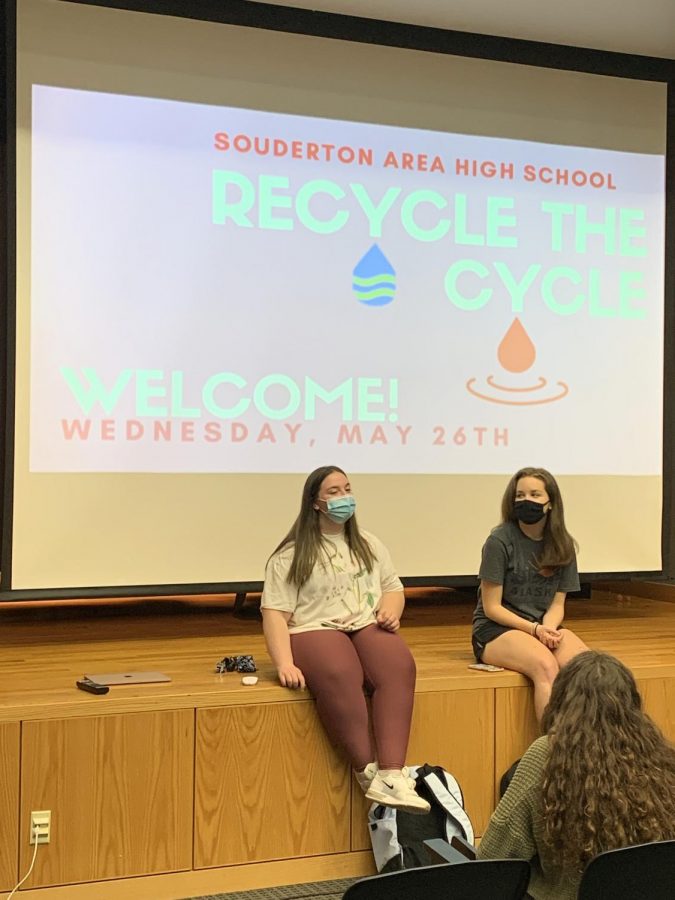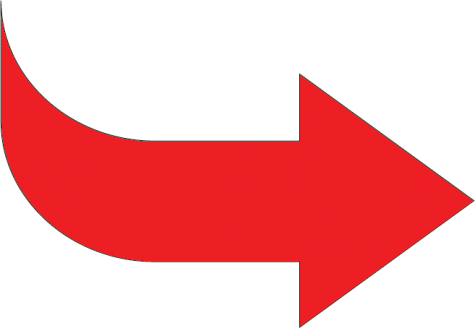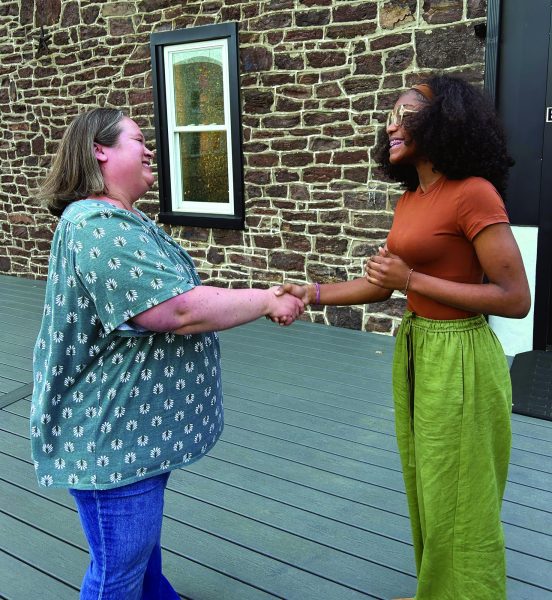Recycle the Cycle Club fights period stigma
To help educate their peers, three juniors started Recycle the Cycle. This club intends to raise awareness for important issues regarding period poverty and menstruating sustainably.
By starting a club, students are hoping to raise awareness about period poverty and sustainable menstrual products.
While in quarantine, co-president Marina Chiaro had the time for self reflection, and came to the realization that she was fortunate enough to stay safe from Covid at home. During this time, she came up with the idea for the club.
In April, Chiaro discussed the idea with co-president Bridget Magee and vice president Allison Magee, and Recycle the Cycle was born.
Prior to starting the club, Chiaro and her mother made care packages for women in Philadelphia. According to Chiaro, this experience “made us realize how fortunate we were to even be in a position where we could give back to these people.”
Magee believes the club’s importance makes it so valuable. “Having a club that can challenge popular ideas and raise awareness for two things that I think are really important, makes the club really worthwhile for me,” said Magee.
Recycle the Cycle treasurer Ava Beskar joined the club after Chiaro personally informed her about it. According to Beskar, as a club officer, she hopes to help make sustainable menstrual products available to all.
“I want to remove the stigma around talking about the time of the month where we bleed for a couple of days because it’s not weird. It’s not gross. It’s something that almost 50% of the population does,” said Beskar.
Sophomore Jami Garrison joined this club in hopes to educate herself and help her community.
“I’m looking forward to helping my community, raising awareness for the cause, establishing a sense of community and making a difference in the struggle of period poverty.” Garrison said.
Additionally, Garrison said that she believes that period poverty is “an important issue to talk about and incorporate into our discussions.”
Many popular period products, such as tampons and pads, are single use. When people are on their periods, they go through multiple disposable products every day.
“I think that a lot of the period products that people use are pretty wasteful,” club member Renae Benner said. “I hope that we will learn more about sustainable period products, the pink tax and contribute to fighting period poverty.”
Benner hopes that the club will become a“fun and safe place to talk about topics that I sometimes feel embarrassed to talk about.”
Both presidents hope to hold monthly meetings to help educate students about period poverty. They also hope to be able to hold meetings and events outside of school.
Chiaro said that she wants to do this because “many clubs have a huge disconnection between officers of the clubs and the members, and she wants her club to become a “big family.”
One of Beskar’s goals for the club is to supply all bathrooms at the high school with menstrual products. Beskar said she hopes to accomplish this because she, and many others, have had to use toilet paper, “instead of an actual product made for bodily functions.”
One of Garrison’s hopes for this club is to help the Souderton community.
“I’m looking forward to helping my community and raising awareness for the cause,” Garrison said. “I hope to establish a sense of community and see lots of volunteer work.”
Beskar also hopes that this club will educate members on current issues regarding sustainable periods, since many sustainable companies were started by men.
According to Beskar, these brands “are not convenient for women just because they weren’t designed by women. But I’m seeing a lot more sustainable brands that are trying to approach periods, and menstrual products in a way that’s accessible to everyone with a vagina.”
Overall, Magee and Chiaro “want to make Souderton and the world a better place,” Magee said.
The first meeting for the club was held on May 26 after school. According to Magee, the best way to learn more about the club is through their Instagram page, @SAHSrecyclethecycle.
During this meeting, all club members in attendance introduced themselves to the group. Additionally, Chiaro and Magee discussed their hopes to stock school bathrooms with menstrual products and participate in events such as fundraisers, women’s marches and volunteer work at women’s shelters.
To get menstrual supplies for the bathrooms, members will be asked to bring in six boxes of period supplies each year, in lieu of a traditional membership fee.





